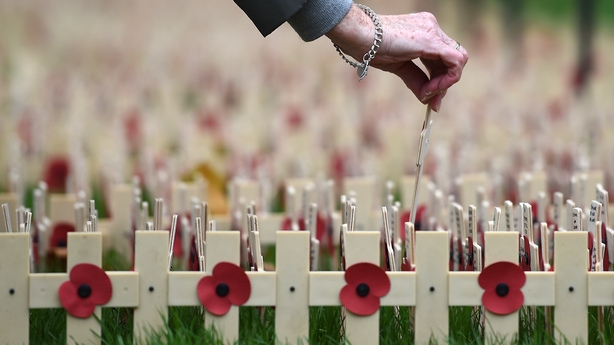Understanding late in the life the family tragedies that resonate deeply and, so, give great significance to the wearing of the Poppy... For Sunday Miscellany on RTÉ Radio 1, listen to The Poppy, by Brian Patterson above.
It's sometime in the early 1950s. Still a young boy, I'm staying with my grandparents in Limerick. On this grey, rainy November day, my grandmother is taking me with her out onto the streets of Limerick. Everything smells of wet. This is the 'flag-day’ of the British Legion and we’re going to spend it selling little paper poppies, to raise money for the Legion. Who or what the British Legion is doesn’t mean very much to me. But something else does - the thought of a cream cake in the Stella Café in the late afternoon, when my granny’s feet have finally had enough.
Long after my grandmother had died, I began to realise that selling poppies for the British Legion on the streets of republican Limerick in the 50's must have required a lot of courage. And I began to understand what motivated her to do that.

Her family, the Reilly's from The Liberties in Dublin, had for generations been suppliers of fodder for the horses of the British Army in Richmond Barracks. So it was natural that many men? boys and men? in the family volunteered and enlisted to fight in the Great War. Their motivation, I think, was neither pro-British nor anti-Irish; it was simply a family tradition. During the war, her brother Tom served in the Royal Irish Rifles; another brother John was an army padre; her Uncle Ned lost a leg; Uncle Charles lost a foot; Uncle Bill was listed as missing somewhere in northern France and is "Known Only Unto God". The Great War loomed large over her family.
Listen to more from Sunday Miscellany here.

